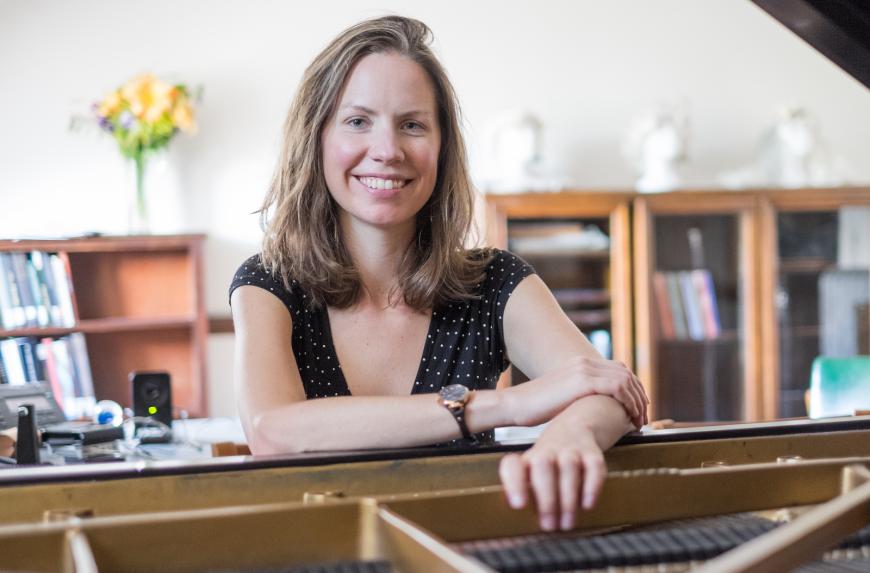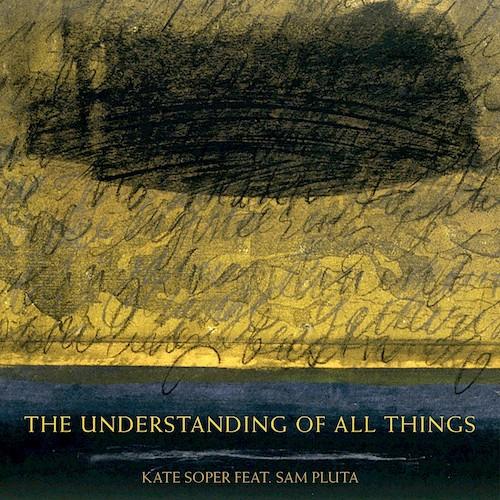
Kate Soper is a serious artist with a deep bent for rigorous philosophy and avant-garde abstraction, yet she puts everything together with a lighter touch than one would expect from the ingredients. Los Angeles got a taste of her style when Long Beach Opera produced her theater piece Voices From the Killing Jar last summer, pairing it with a revolutionary antecedent, Arnold Schoenberg’s Pierrot Lunaire.
With that in mind, here comes another Soper project with a title suggesting a short course on the ways of the world, The Understanding of All Things (New Focus). It isn’t as elaborately cast as Voices, consisting of just Soper, her voice and piano, and her electronic music collaborator Sam Pluta. But like Voices and her chamber opera, Ipsa Dixit, it comes packed with a selection of distinguished literary and historical figures like Franz Kafka, George Berkeley, Parmenides, William Butler Yeats, Fred Lerdahl, and Robert Frost providing a good deal of the texts.

Understanding is really a combination of three works and two improvisations, with the odd-numbered sections devoted to the scripted works and the even-numbered intermezzos to the improvs. The main point of the exercise is stated in the middle of Part III — The Fragments of Parmenides — and that is, “Nothing we perceive with our senses is real.”
The title piece starts with the grinding, jiggling sounds of an electronic tape imitating a berserk spinning top. The words of the Kafka text (taken from his Der Kriesel) spoken by Soper are broken up, scattered, underpinned by a drone. It’s a surreal piece as befitting the librettist whose name almost defines the word “surreal.”
In the first joint improvisation. Soper speaks with a Laurie Anderson-like archness; her voice is often electronically altered and coated with reverb. Now and then she sings, both in a strong, lyrical, pop/Broadway voice occasionally diverted toward weird extended techniques, her voice catapulting upward into unreal ranges. The alluring electronics seem to comment on the words, sweeping and beeping free of defined pitch, a throwback to an earlier predigital era of electronic music.
The Fragments of Parmenides, the central focus of the album, is a narrative interspersed with short songs set to shards of poems from Parmenides and Yeats. Soper’s vocal lines are often atonal and angular with occasional deliberately drifting pitch. She slides her fingers up and down the keyboard, pounds on the bass piano strings with the damper released to create thunder-like booms, repeats single notes over and over obsessively.
The second improvisation has no text, only extended vocal noises engaging in a zany dialogue with Pluta’s electronics, with the piano providing punctuations at first, becoming more involved toward the close of the piece. The finale So Dawn Chromatically Descends to Day is very brief, an ode by Lerdahl to poetry as the bridge between music and language, with a placid setting of a Frost poem illustrating the point at the close.
There is trenchant philosophy in much of this, I’m sure, but I would ignore the ponderous booklet notes that try to explain it. The notes ask “Can we trust our senses?” and I say, when it means enjoying the vast vocabulary of Pluta’s electronic imagination and Soper’s acrobatic manipulation of her voice, the answer is yes!





